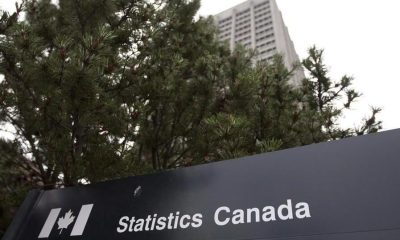Aritzia Inc.’s chief executive says the apparel retailer is making progress in its push to make the brand as popular in the U.S. as it is in Canada.
Jennifer Wong told analysts on a Thursday call that she is pleased with the company’s performance south of the border.
“After 40 years in business, we’re very well-known and loved in Canada and we’re well on our way to replicating that love in the United States,” she said.
Aritzia, which was founded in Vancouver in 1984, has long been a Canadian favourite, with brands like TNA, Wilfred, Babaton and Reigning Champ drawing in younger shoppers as well as celebrities like Hailey Bieber and Jessica Alba.
It set its sights on the U.S. in 2007, opening its first stores there that year. Now, 52 of its 119 stores are in the U.S., and Wong believes that’s just the start.
“The opportunity to grow our brand remains tremendous,” Wong said.
Over the last 12 months, Aritzia opened five new boutiques and remodelled four more. In its current quarter, it welcomed shoppers to a location in Boca Raton, Fla., and said three more locations are due to open this year in Florida, Texas and California.
Store openings, said Wong, are the company’s “most consistent and most predictable” growth driver.
They often exceed the company’s predictions, too.
The Boca Raton location alone beat Aritzia’s internal projections by more than 35 per cent already, and the company is expected to cover off the costs of opening the store within 10 months, earlier than the 12 to 18 months it first expected.
Wong was also delighted that in the Boca Raton store’s first week, more than 60 per cent of clients were new to the Aritzia brand. Another location recently opened in Sacramento, Calif., saw 50 per cent new customers in its first month.
“It’s very encouraging,” Wong said.
The insights into the company’s U.S. footprint came as Aritzia reported earnings of $15.8 million in its first quarter, down from $17.5 million a year earlier.
Earnings per diluted share were 14 cents during the period ended June 2, down from 15 cents last year.
Aritzia’s adjusted net income amounted to $25 million compared with $11.2 million a year prior.
Net revenues for the business totalled $498.6 million, up from $462.7 million.
Its retail net revenue rose 9.2 per cent from a year before to $357.8 million, while its ecommerce net revenue jumped 4.2 per cent to $140.8 million.
This report by The Canadian Press was first published July 11, 2024.
Companies in this story: (TSX:ATZ)
























